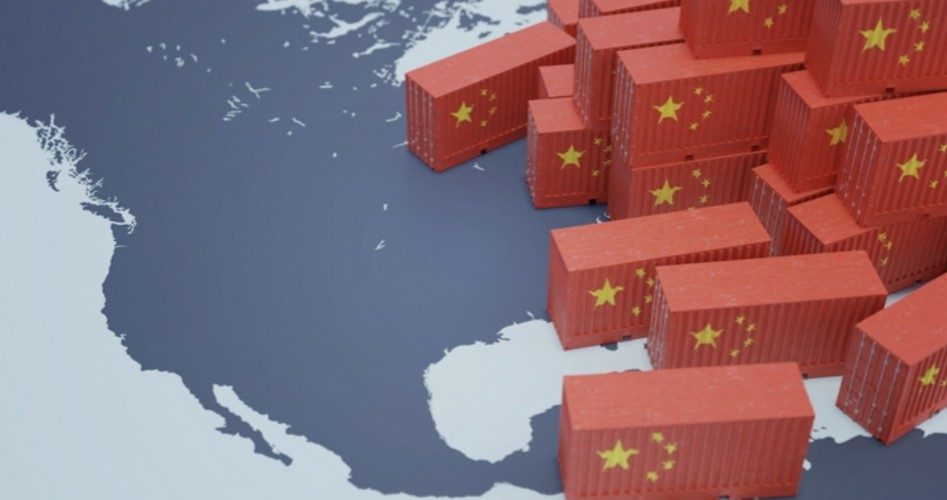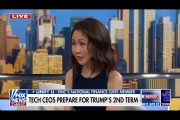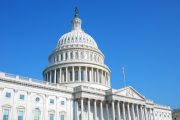
During a press conference in front of the White House on Monday, Labor Day, President Trump announced his intentions to “decouple” from China. Along the way he accused his Democratic opponent, Joe Biden, of helping the Chinese to destabilize and weaken the United States through his support of China’s entry into the World Trade Organization (WTO).
Said Trump:
We will make America into the manufacturing superpower of the world and will end our reliance on China once and for all.
Whether it’s decoupling, or putting in massive tariffs like I’ve been doing already, we will end our reliance on China because we can’t rely on China.
The president said that U.S. reliance on China continues to cost the United States billions of dollars every year:
If we didn’t do business with [China], we wouldn’t lose billions of dollars….
They take our money and they spend it on building airplanes and … ships and … rockets and missiles.
It’s not only an economic move, but a political one as well. Pew Research Center found that three-quarters of the American people hold an “unfavorable” view of China, the highest in 15 years. It found that more than half of them see China not as a partner but as a competitor.
And then Trump took on his opponent for being a prime instigator of the predicament facing the United States: “If Biden wins, China wins, because China will own this country. Today’s Labor Day — it’s a good time to talk about where we’re being ripped off by countries. But nobody’s even close to China.”
He then referred to a New York Times article published on Sunday, “Joe Biden’s China Journey,” and used some of it to expose his opponent’s soft-headed approach in dealing with China.
The Times said that Biden’s support of trade with China through the WTO included a speech he made on the Senate floor: Such a trade agreement, said Biden, “continues a process of careful engagement designed to encourage China’s development as a productive, responsible member of the world community.”
That article told of Biden’s trip to China in 2001 as chairman of the Senate Foreign Relations Committee to welcome the communists into the World Trade Organization. Said Biden at the time:
The United States welcomes the emergence of the prosperous, integrated China on the global stage, because we expect this is going to be a China that plays by the rules.
At a press conference following his return he welcomed China’s emergence “as a great power, because great powers adhere to international norms in the areas of nonproliferation, human rights and trade.”
Trump extracted this from the Times article, telling reporters on Monday:
In 2001 Biden said the United States welcomes the emergency of a prosperous, integrated China at the global stage because we expect this is going to be a China that plays by the rules.
They didn’t play by the rules….
They were flatlined for years and years and [then] they joined the World Trade Organization. And frankly, they cheated.
It was all a sham and a fraud from the beginning. The Communist Chinese regime saw an opening, an opportunity, to invite American businessmen to invest heavily in China and, in the process, to steal American technology, to gain access to American consumers’ dollars and build a war machine.
This is the message from Art Thompson, former CEO of The John Birch Society. In his newly-released book, China — The Deep State’s Trojan Horse in America, Thompson wrote that China fooled people such as Biden into thinking that “if we just trade with them and treat them as honest human beings, somehow they will change.”
Instead, wrote Thompson: “China uses trade to try to diminish the United States’ industrial capacity, while using the funds derived from American consumer purchases for buying up influence around the globe.”
Back in 2018, reported the Times, two of Biden’s key advisors, Kurt M. Campbell and Ely Ratner, admitted that the policy was wrongheaded:
Across the ideological spectrum, we in the U.S. foreign policy community have remained deeply invested in expectations about China — about its approach to economics, domestic politics, security and global order — even as evidence against them has accumulated.
The policies built on such expectations have failed to change China in the ways we intended or hoped.
Even so, reported the Times, “Mr. Biden, an avatar of the establishment, is not recanting his past enthusiasm for engagement [with China].”
The president credited the Times for telling the truth about Biden: “The New York Times has just published an entire story on Biden’s China’s sellouts, which is amazing for the New York Times. I appreciate that.”
Biden’s sellouts have been costly, said the Times:
But over the decades, China disappointed hopes for a broader transformation. State-owned enterprises strengthened their control of strategic industries, officials coerced technology transfer from foreign companies or outright stole corporate secrets, and the Communist Party limited the development of an independent judiciary. As its economy became stronger, China’s political system became less free….
From 1999 to 2011, competition from China cost the United States more than two million factory jobs, according to academic research.
If Biden is elected in November, America will lose much more than jobs; it will come even closer to losing its sovereignty to the Deep State.
Photo: vchal / iStock / Getty Images Plus
An Ivy League graduate and former investment advisor, Bob is a regular contributor to The New American, primarily on economics and politics. He can be reached at [email protected].
Related article:
China’s Two New Aircraft Carriers to Take Part in Intimidating War Games



